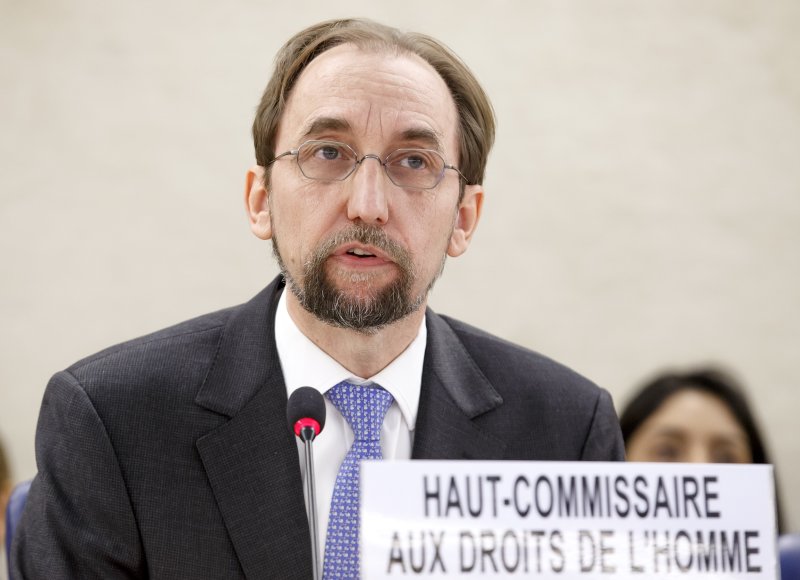Zeid Ra'ad Al Hussein, U.N. High Commissioner for Human Rights, addresses the human rights situation of the minority Rohingya Muslim population. Photo by Salvatore Di Nolfi/EPA
Dec. 5 (UPI) -- The U.N. Human Rights Chief condemned attacks against the Rohingya in Myanmar on Tuesday and called for a criminal investigation into those involved in the violence.
Zeid Ra'ad Al Hussein, the human rights chief, said a special session of the U.N. Human Rights Council was needed to discuss the "widespread, systematic and shockingly brutal" violence the Rohingya Muslim minority have endured in Rakhine State.
The high commissioner recommended the U.N. General Assembly establish an impartial and independent mechanism to assist in the individual criminal investigations of those responsible for the violence in the region.
"Ultimately, this is a legal determination only a competent court can make," Al Hussein said. "But the concerns are extremely serious, and clearly call for access to be immediately granted for further verification."
Al Hussein said his office has visited and interviewed Rohingya refugees in Bangladesh three times this year.
Witnesses in refugee camps reported a slew of crimes -- saying people have burned others to death, carried out murders, raped women and girls and burned homes, schools, markets and mosques.
Since August, an estimated 626,000 refugees -- or more than half the Rohingya population of Rakhine state -- have fled from Myanmar to Bangladesh. The predominantly Buddhist Myanmar government has long withheld citizenship from the Muslim minority group.
"The world cannot countenance a hasty window-dressing of these shocking atrocities, bundling people back to conditions of severe discrimination and latent violence which seem certain to lead in the future to further suffering, and more movements of people," Al Hussein said.
"How much do people have to endure before their suffering is acknowledged and their identity and rights are recognized, by their government and by the world?"
In November, U.S. Secretary of State Rex Tillerson said the violence against the Rohingya qualifies as ethnic cleansing.
Tillerson said the United States could "pursue accountability through U.S. law, including possible targeted sanctions."















